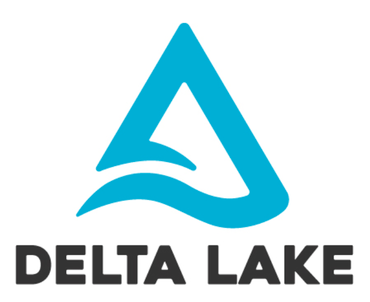Data storage is central when it comes to working with data. We often store data on-prem or in the cloud, and it is not unusual to implement hybrid solutions. The most common data management systems are Data Warehouses and Data Lakes. Delta Lake is a usable extension of the Data Lake.
Data Lake challenges
Data Lakes can be referred to as a pool that can store structured and unstructured data at a low cost, but they come with some drawbacks: It is challenging to maintain the quality of data, since the growing data volume negatively impact performance and the data consists of different formats. They are also hard to secure in terms of few auditing and governance features. As a result, large amount of data goes unused.
What is Delta Lake?
Delta Lake is an open-source data storage and management layer in favour for a robust data lake with Apache Spark. It solves the challenges with regular data lake and provides as a more reliable, secure and performance efficient storage tool for any data format as well as both batch and streaming data.
What are the benefits of using Delta Lake?
The main components that build up the Delta Lake are parquet files and Transaction log directories, which ensure data reliability. Delta Tables are used for version control.
Delta Tables: Contain data in parquet files and transaction logs kept in the object storage. Can optionally be registered in a meta store.
Transaction logs: Ordered record of the transactions performed on a Delta table and act as the Single source of truth for that table. It is the mechanism that the Delta Engine uses to guarantee atomicity.

Delta Lake provides a bunch of key features, such as:
- ACID Transactions: To ensure high integrity and data reliability Delta Lake handles ACID transactions. This means that data is assured to not fall into an inconsistent state that requires time-consuming recovery.
- Scalable metadata handling: Distributed data process and only reading data from the latest checkpoint allows Delta Lake to effectively manage large volume of data.
- Upserts and deletes: Enables complex use cases by supporting update, delete and merge operations.
- Streaming and batch unification: A Delta Table can act either as a batch table or a source or sink for streamed data. The mixing of batch and streaming can prevent issues like corrupt records.
- Time Travel: Version handling enables complete control and access over data history and comes with the benefit of using consistent data for reproducible results when experimenting with your machine learning models.
- Schema enforcement and schema evolution: Inconsistent records can be prevented from being ingested since Delta Lake bring the ability to enforce a schema by specifying it. Delta Lake also provides the opportunity to capture changes to a table with the support of schema evolution.
In addition to these features, Delta Lake also grants for optimization to speed up query performances. The different techniques include file management, data skipping, table optimization and caching.
As you see there are many perks of Delta Lake and if you work with large amounts of data and want to facilitate the ETL process I encourage you to consider using it.




